Baldur's Gate 3's publishing chief criticizes Ubisoft for its 'broken' strategy: If gamers must get used not to owning games, then 'developers' must get used not to having jobs.
Michael Douse, Larian's director of publishing, is not one to hold back when it comes to expressing his opinion. He has expressed his opinion about Ubisoft’s decision to disband Prince of Persia The Lost Crown's development team. Douse said that the decision was the result of "broken strategy", which prioritizes subscriptions above sales.
Prince of Persia The Lost Crown is a good game. PC Gamer's Mollie Taylor felt it was dragged by a slow start. She called it "a slowburn to a fault" and gave it an overall positive review. It holds an enviable aggregate score of 86 on Metacritic. Ubisoft confirmed recently that the development team was scattered to the four wind to work on other projects that would benefit from their expertise.
Douse believes that this is at least partly the result of Ubisoft focusing on subscriptions rather than conventional game sales - the whole "feeling confident with not owning your games" thing that Ubisoft director for subscriptions Philippe Tremblay espoused earlier this year - and the decision to stop releasing PC games on Steam, the largest digital storefront.
Douse wrote on X that "Far Cry 6 was probably the last notable game for their platform in 2021." (via GamesRadar). "The Crew, Mirage, and Avatar were released in 2023, but didn't do well. You can assume that subscriptions were low when PoP was released in 2024. This means that people would not be launching their stores all that much.
"If it was released on Steam, it would not only have been a success in the market but there would be a sequel likely because the team is so strong. It's a terrible strategy. It's much, much harder to release a game with an 85+ score than it is to create one. It just shouldn't have been done the way it was."
Prince of Persia The Lost Crown was finally released on Steam in August 2008, seven months after the initial release. The game has been well received, with a high user rating. However, it was released seven months after its initial release.
"If the statement that 'gamers should be used to not owning games' is true due to a specific release (sub above sales), the statement that 'developers have to get used to losing their jobs if they create a critically-acclaimed game' is also true (platform strategy over title sales). This is just not sensible, even from a business standpoint," Douse wrote.
Ubisoft may have seen the error of their ways to a certain extent. Ubisoft began releasing PC games on Steam in 2022, after years of limiting them to its own storefront or the Epic Games Store. It announced in September that it would be returning to the storefront, and that all future releases including the delayed Assassin’s Creed: Shadows will launch on Steam from day one.
Remember that you are not really "owning" the games you buy on Steam. You're paying for a license. This can be revoked at any time for any reason. Steam is the most popular place for PC gamers to buy their games. In the digital marketplace, which now dominates PC gaming and is dominated by Steam, this license agreement is defacto ownership. Publishers who avoid the storefront do so at their own peril.
This is not to say that a Steam release would have ensured a bright future for the dev team of The Lost Crown: it's also available on PlayStation 4 & PS5, Xbox One & Xbox Series X/S and Nintendo Switch. These platforms, however, didn't seem to add up to stellar sale. Douse said that the Steam Storefront and Steam Deck were the perfect fit, and it would have given it a greater chance to find an audience. "It cannot resonate with an audience it does not reach because it isn’t on a platform and at the right time."
"Steam on PC accounts for 90%+ of all sales for premium games, and may be slightly lower if the platform is your own," he wrote. "If you remove Steam at the peak of its relevance, you're removing an average of 90% of your potential audience." "Quite substantial."
Douse isn’t the only Larian stalwart who feels this way. In January, Larian founder Swen vincke said that "it will be much harder to get good contents if subscription becomes dominant model." This would leave subscription service owners to decide which games are made and which ones aren’t. Vincke stated that although it's a controversial point, "you won't find any of our games on subscription services."
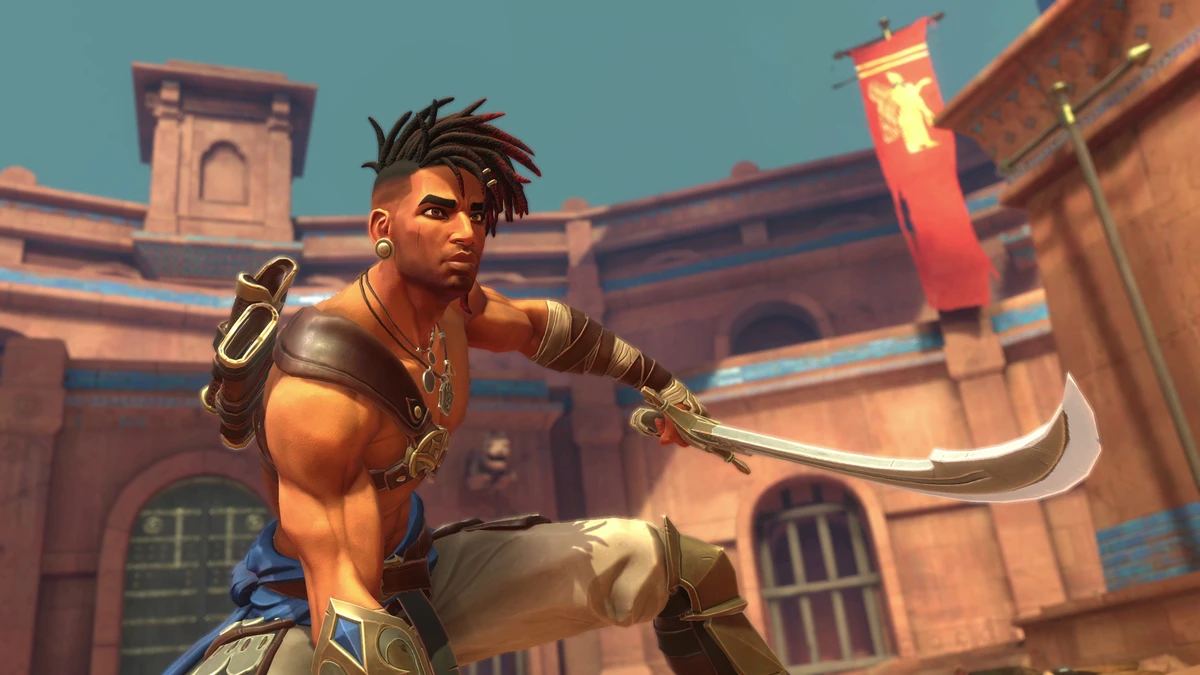
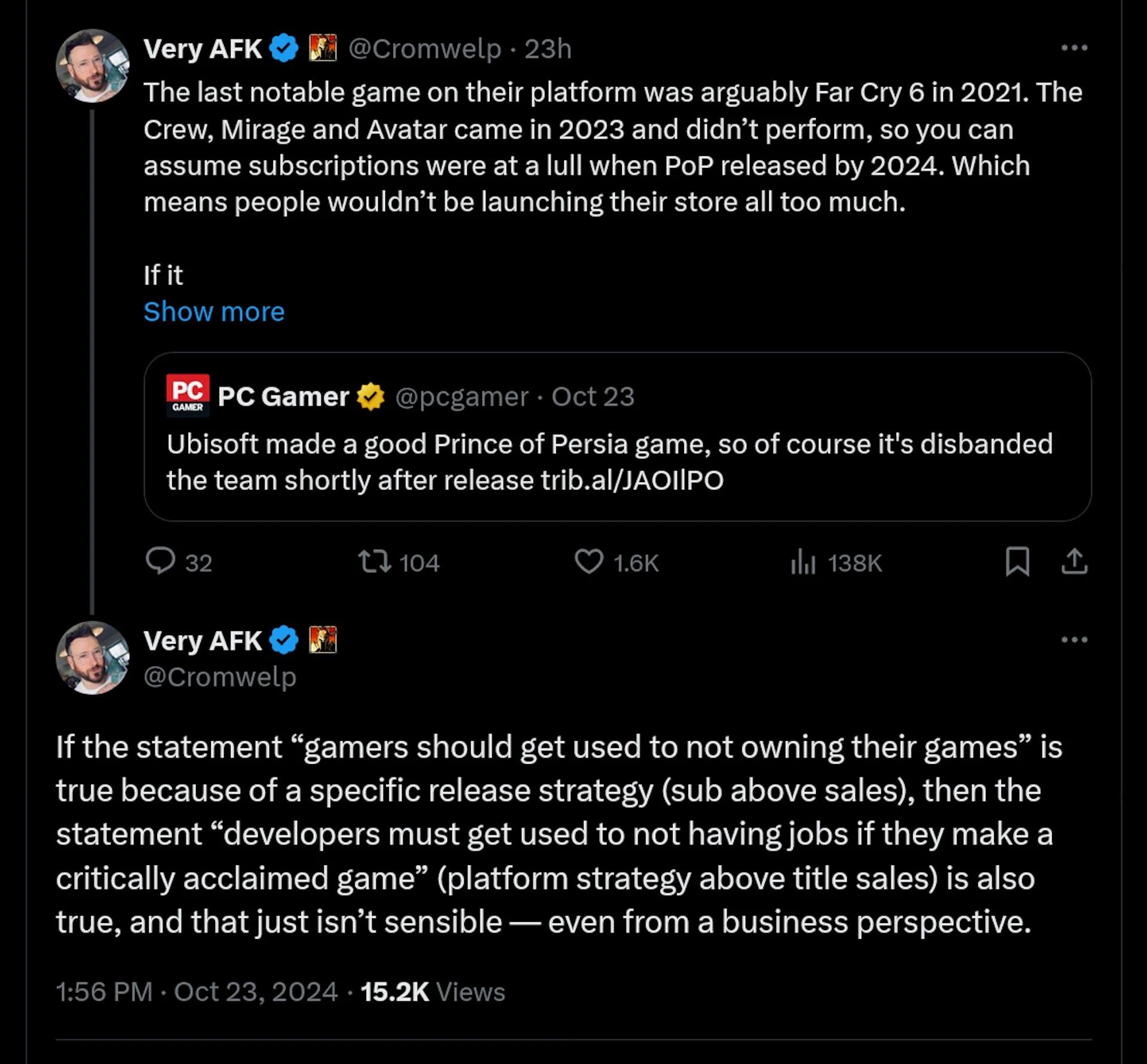
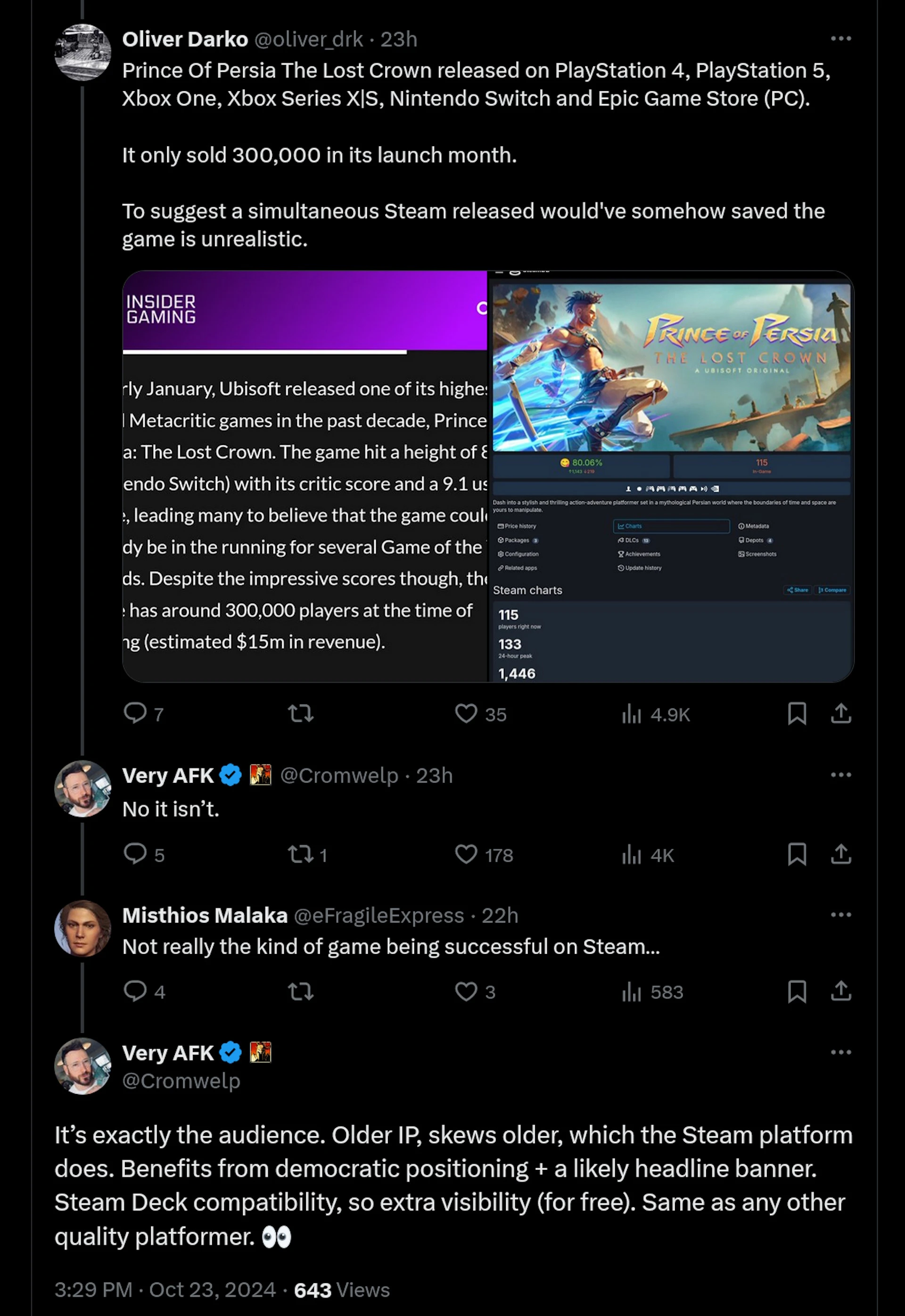
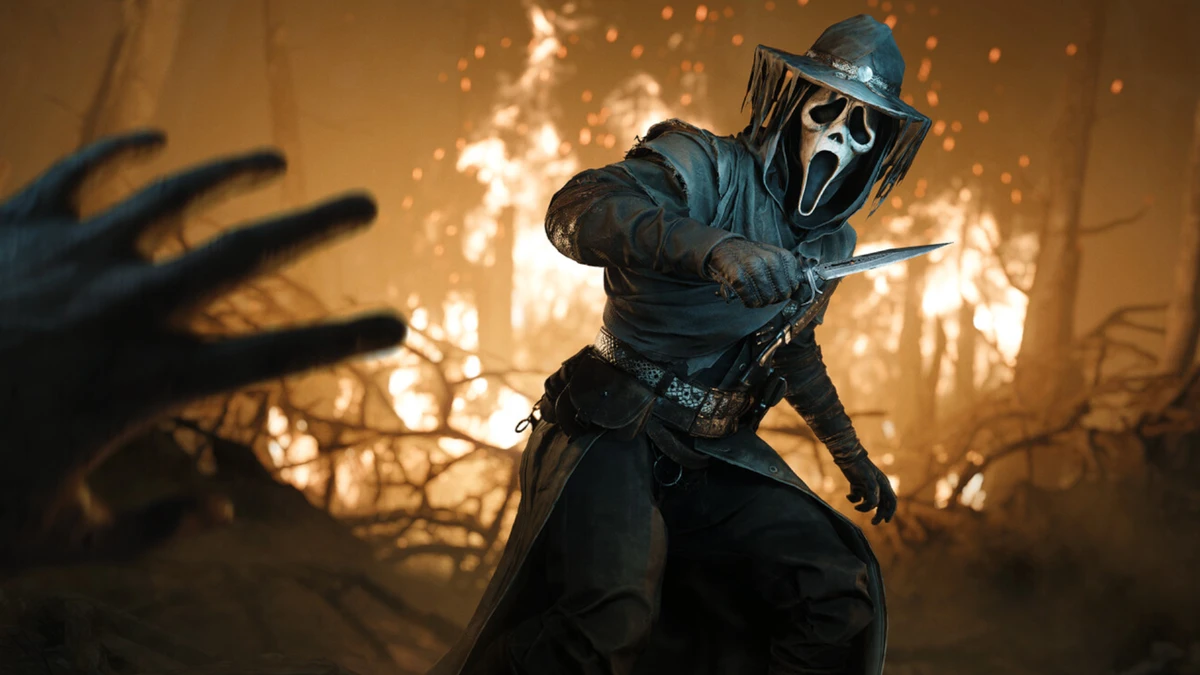
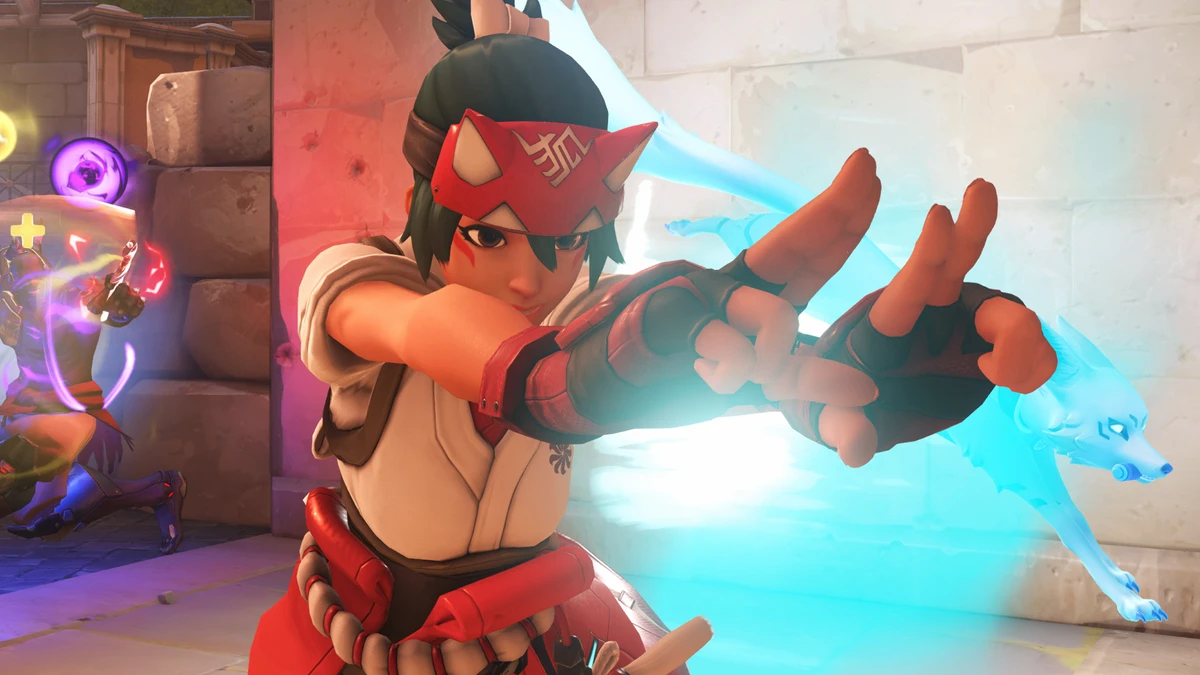

Comments